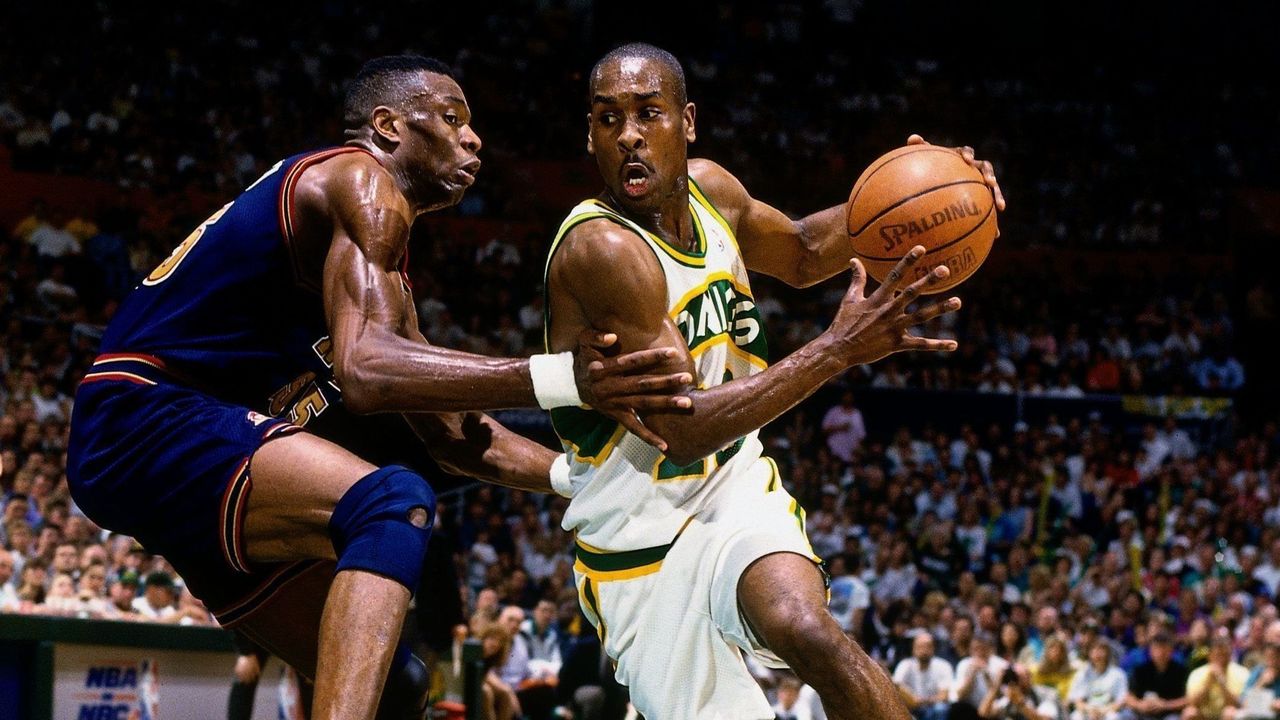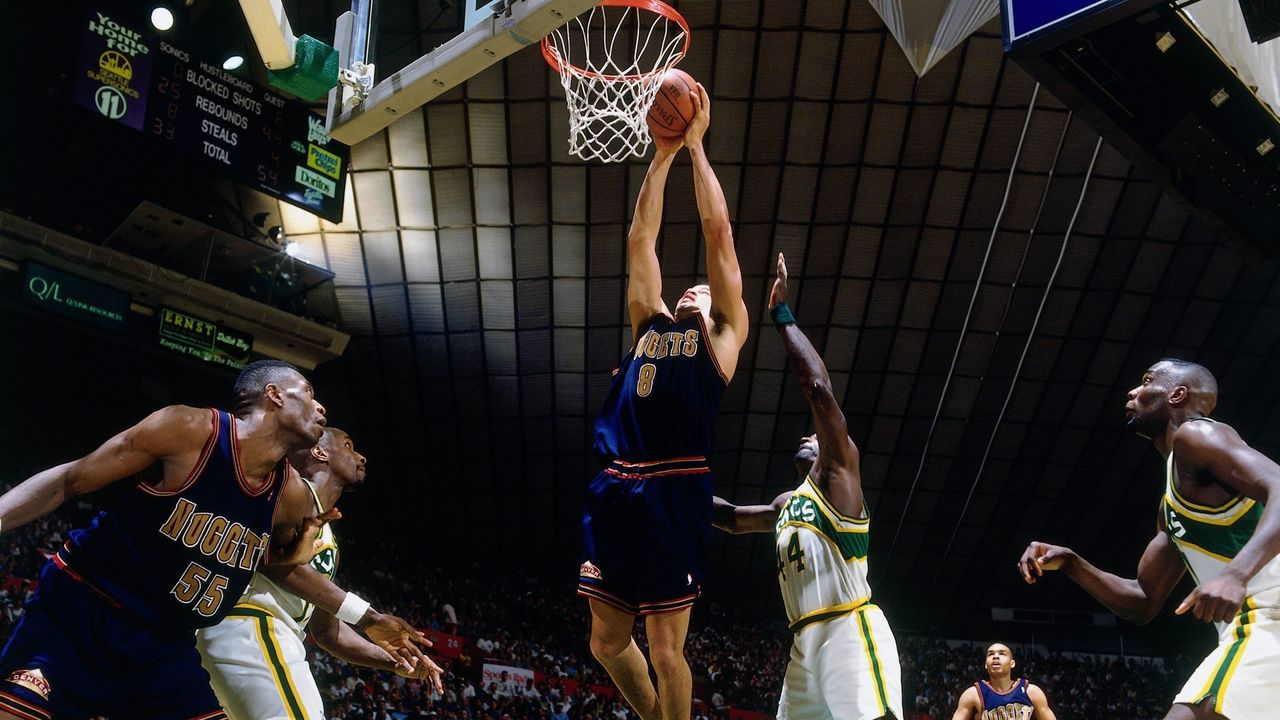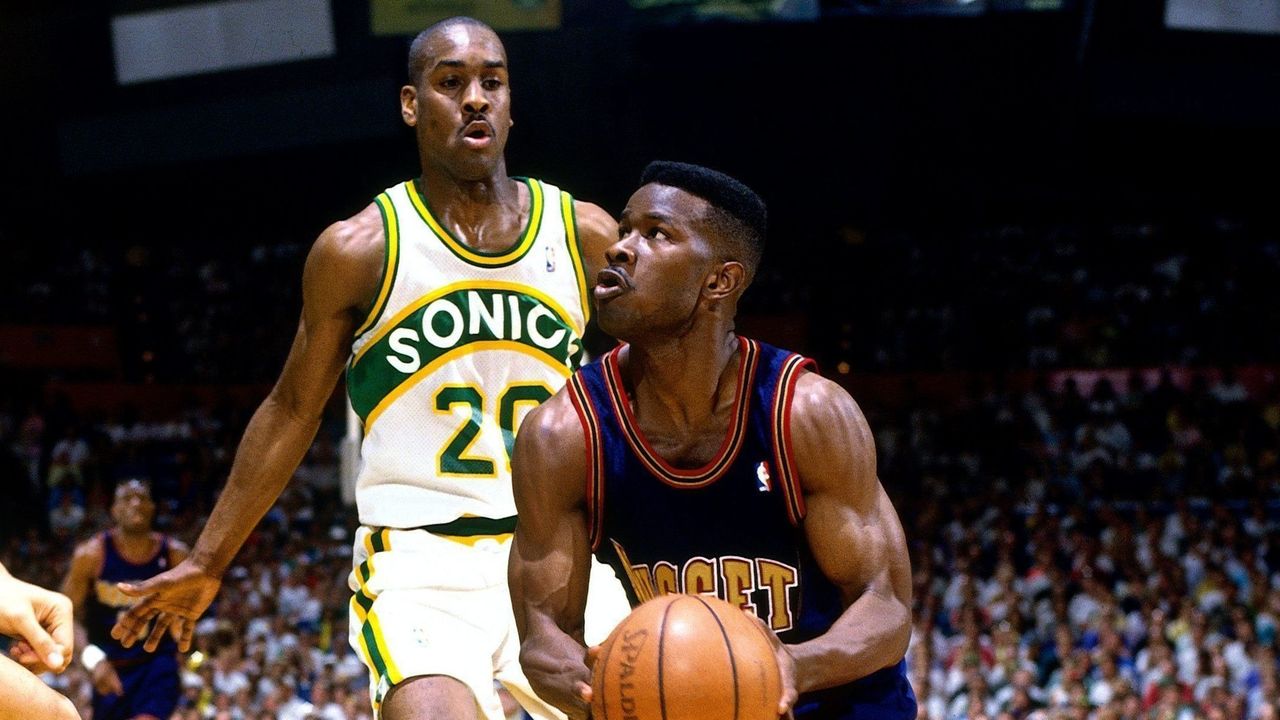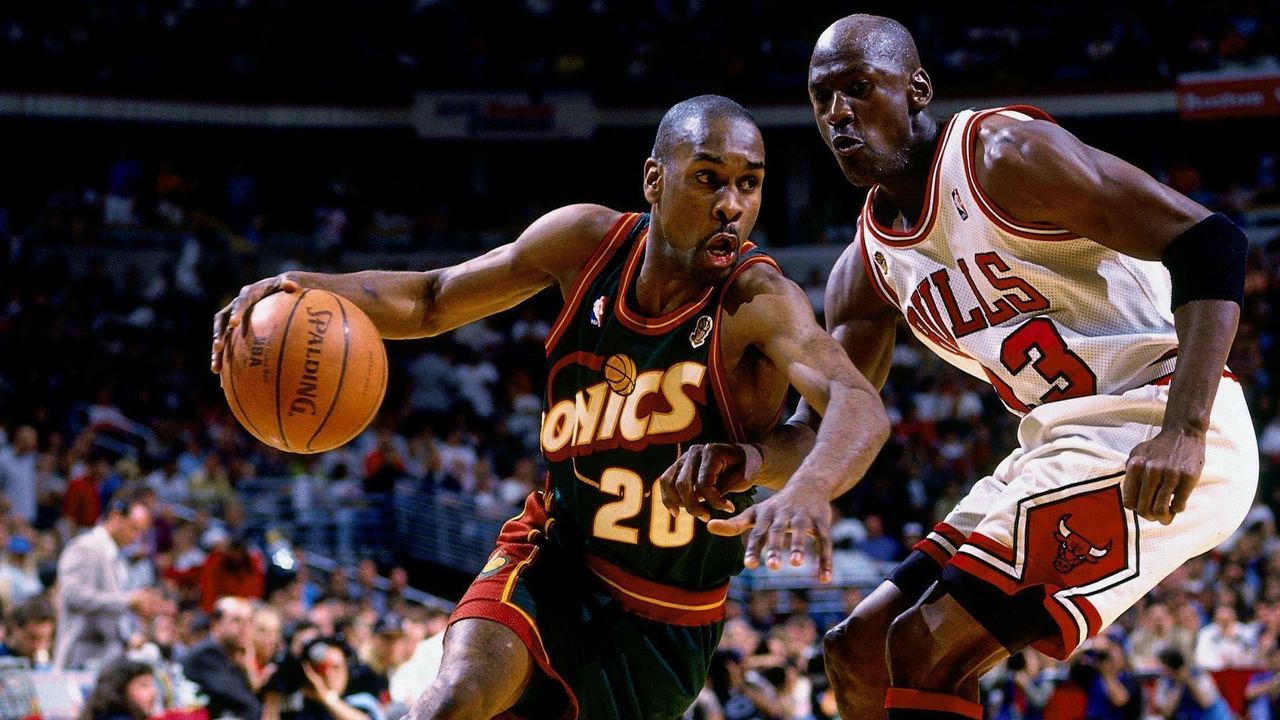1st-Round Rewind: '94 Nuggets shock SuperSonics to make history
With the start of 2019-20 NBA Playoffs delayed, theScore's basketball editors are picking their favorite first-round series from years past. Today, we're looking back at the 1994 first-round matchup between the top-seeded Seattle SuperSonics and the No. 8 seed Denver Nuggets.
The setup

The SuperSonics had absolutely no business losing this series.
With Michael Jordan away from basketball for a futile pursuit of a baseball career, the NBA apex was Seattle's for the taking. The SuperSonics did their part during the regular season, finishing a league-best 63-19 under George Karl's tutelage. They were the overwhelming championship favorites, and no top-ranked team had ever fallen to a No. 8 seed in the playoff format in use at the time.
Meanwhile, the Nuggets were just barely a .500 club at 42-40, and they were also the NBA's youngest squad that year. At 30 years old, Reggie Williams was their most experienced player, with seven seasons under his belt heading into the 1994 playoffs. Nobody else had logged more than five.
The series

The stars: Gary Payton and Shawn Kemp, one of the best one-two punches in league history, led the Sonics. However, you could contend that neither was the team's best player in the series.
That title arguably went to German forward Detlef Schrempf, who averaged a team-high 18.6 points in the five games, adding 5.4 rebounds per contest. Regardless, the Payton-Kemp-Schrempf trio was instrumental while pushing Seattle to a two-game lead.
Dikembe Mutombo, meanwhile, led Denver's star talent. He had just come off his third full NBA season and was an absolute menace on both ends of the court, registering an unfathomable 6.2 blocks per game against the Sonics and a double-double of 12.6 points and 12.2 boards. He notched eight rejections in Game 5 alone.
A solid supporting cast surrounded Mutombo, too. Forward LaPhonso Ellis rose to the occasion in just his second year, leading the team in scoring against Seattle with 16 points per game. Williams, who was more than just a locker-room vet, averaged 14.4 points, 5.6 rebounds, and five assists, and his impressive series included a 31-point performance in Game 3 (more on that below). On paper, however, the Nuggets shouldn't have stood a chance.
Turning point: Denver's Game 3 win not only staved off elimination (first-round series were only five games then), it shifted momentum entirely in the Nuggets' favor.
The Sonics' overconfidence was reflected in their approach to travel accommodations, and that feeling may have burned them.
"We had heard that Seattle hadn't checked into their hotel before Game 3," Williams told Nick Kosmider of The Athletic in 2019. "They weren't planning to be around for another night. That got us fired up."
Williams then produced the best playoff game of his career, leading Denver's 110-93 rout of Seattle. Cue the comeback.

X-factors: With Payton making life miserable for Nuggets starting guard Mahmoud Abdul-Rauf, Denver head coach Dan Issel entrusted reserve ball-handler Robert Pack with substantially more playing time in the series. The benefits of that shift were apparent in Game 5, with Pack pouring in a game-high 23 points off the bench to help the Nuggets win the decider on the road.
The highlight
No moment from that series resonates as strongly as a crying Mutombo falling to the Sonics' court after Game 5, holding the ball triumphantly above his head.
Dikembe Mutombo and the @nuggets pulled off one of the biggest upsets in NBA Playoff history in '94! 💪 #TeamDay pic.twitter.com/hzrsgxRz75
— NBA TV (@NBATV) August 15, 2019
But if you really want a massive in-game highlight to look back on, Pack running the length of the court and dunking over Kemp in Game 3 foreshadowed the rest of the series.
(1994) Robert Pack takes it up the whole court and yams on Shawn Kemp! 👀 pic.twitter.com/qBOBW1nkJf
— Timeless Sports (@timelesssports_) August 21, 2018
The legacy
The Nuggets' great postseason vibes ended there. Although they somehow managed to force a Game 7 after falling down 0-3 in the next round to the Jazz, Denver lost 91-81 in Utah and was eliminated.
That was the Nuggets' peak for a long time.
Issel resigned 34 games into the next season, saying coaching made him "something I don't want to be." General manager Bernie Bickerstaff eventually took charge, and the San Antonio Spurs swept his team in the first round.
The Nuggets didn't make the postseason again until 2004.

To the Sonics' credit, they stayed competitive despite the humiliating upset.
After another first-round exit in 1995, Seattle finally made it to the NBA Finals in 1996, but it was too late. Jordan, fresh off his first full season since returning from baseball a year earlier, led the Bulls to a six-game triumph over Seattle. Chicago went on to three-peat, and Seattle never got that close again.
Of course, everyone knows how the Sonics' story ends: They don't exist anymore. While the Oklahoma City Thunder technically retained the Sonics' history when the team relocated in 2008, fans in both cities consider the clubs separate entities.